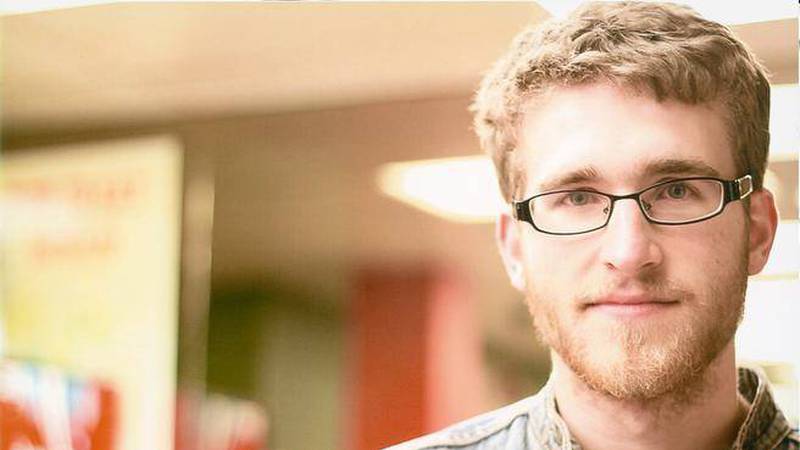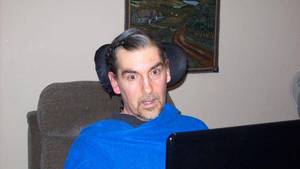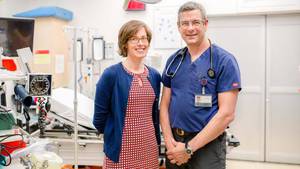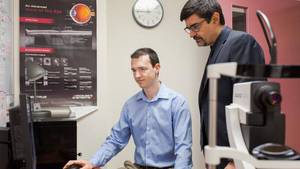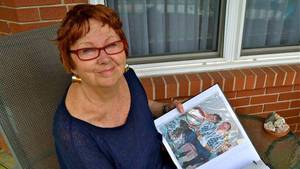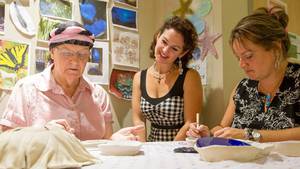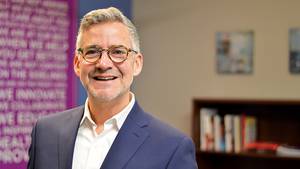At 19, people receiving ongoing treatment for mental health issues must switch from youth services at the IWK to adult services at the QEII Health Sciences Centre and other sites within the Mental Health and Addictions Program.
Seventy-five per cent of mental health disorders start before people turn 25, meaning the service transition comes right when people are most likely to face mental health problems, says Dr. David Pilon, a psychologist at the QEII.
“It is the most inopportune time to transition them between health systems,” he says.
He’s leading the
Fred and Elizabeth Fountain wanted to honour the memory of their son, Alex, with a generous gift of $1,050,000 to the QEII Foundation. The donation funds the
“We’re making good progress, and it’s very impressive to see,” Dr. Pilon says.
He works closely with Debbie Phillips, the project’s coordinator. “These emerging adults haven’t been given the tools, resources and knowledge they need to move into the adult healthcare system,” she says.
She notes clinicians are evolving their language from “transfers” to “transitions”. “The language is starting to shift, and we’re starting to shift the culture,” explains Debbie.
Those who treat adults are learning better ways to help emerging adults. “There is a big difference between working with a 20-year-old and working with a 40-year-old when it comes to their mental health needs,” she notes.
Debbie says the project’s long-term goal is when a young person receiving treatment approaches their nineteenth birthday, IWK clinicians automatically set up appointments with their peers in the adult Mental Health and Addictions Program. Together, the clinicians will meet with the emerging adult and their family to foster a smooth transition.
They’re also gathering better data, as currently no one knows how many young people transition into adult care. That also means there is no monitoring of how many individuals do not continue in care, which can have devastating impacts, disrupting education and derailing careers. People can also be so overwhelmed by their mental health that other developmental skills fall away.
The
“All of us received training from the Healthy Minds Cooperative in a widely used model of peer support designed by Appalachian Consulting Group,” he says. “The basic tenet of peer support is to be an active and compassionate listener; to offer advice and emotional support in the aim of empowering an individual in taking an active approach to dealing with the challenges they face.”
The student peer support workers help with academic, financial and social challenges as emerging adults adapt to the semi-independence of university life. Each student peer has successfully dealt with their own challenges, and they understand what their peer is experiencing.
At NSCAD, weekly meetings of the Mental Health Collective give students an open, stigma-free environment to discuss issues and figure out solutions. The idea is that people should talk about anxiety disorders as openly as they do asthma.
Debbie looks forward to a day when stigma associated with mental health problems disappear. “This is the generation that will change things,” she says. “We have a long way to go, but our project is assisting to make tangible changes in helping emerging adults to stay connected to the care they require.”

